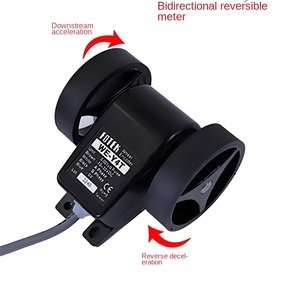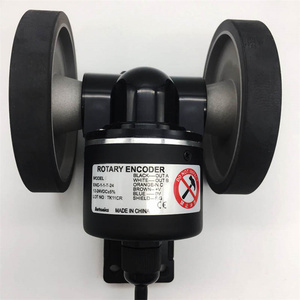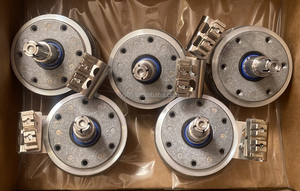Understanding Wheel Encoder Sensors
A wheel encoder sensor is an integral component used in various applications involving rotational systems and motion tracking. These sensors convert mechanical motion into an electrical signal, providing precise feedback on the position, speed, and direction of a wheel or shaft. With the rise of robotics, industrial automation, and smart vehicles, wheel encoder sensors are pivotal in enhancing performance and accuracy. This guide aims to delve into various aspects of wheel encoder sensors, elaborating on types, functions, and practical applications that highlight their importance in modern technology.
Types of Wheel Encoder Sensors
Wheel encoder sensors are categorized based on their mechanisms and applications. Here are the primary types:
- Incremental Encoders: These sensors provide information about the position and speed by generating pulses as the wheel turns. Each pulse corresponds to a certain degree of rotation, which is useful for applications requiring real-time input.
- Absolute Encoders: Unlike incremental encoders, absolute encoders deliver a unique position value for every possible position of the wheel. Thus, they maintain precise positioning even after power loss.
- Optical Encoders: These use light beams and photodetectors to function, providing high accuracy and resolution. They are often used in robotics and intricate machinery.
- Magnetic Encoders: Utilizing magnetic fields, these encoders operate in harsh conditions where optical encoders might fail. They are ideal for heavy-duty vehicles and environments with dust or dirt.
Function and Feature of Wheel Encoder Sensors
Wheel encoder sensors encompass several functions and features that enhance their utility in various applications:
- Position Measurement: Wheel encoders track the angular position of a wheel, crucial for applications in robotic systems and automated machinery.
- Speed Detection: They measure the rotation speed by counting the pulses per time unit, which helps in controlling motor performance in vehicles and machines.
- Direction Control: Wheel encoders can determine the direction of rotation, vital for navigation and maneuvering in robotics and automation processes.
- High Precision: The accuracy of wheel encoder sensors ensures reliable data for controlling operations, dramatically reducing the risk of errors.
- Diverse Output Options: Many encoders provide analog or digital outputs, making them compatible with various control systems and applications.
Applications of Wheel Encoder Sensors
The versatility of wheel encoder sensors translates into various industries and applications:
- Robotics: In robotic systems, wheel encoders ensure precise movement and position tracking to navigate complex environments.
- Manufacturing Automation: Used in conveyor belts and production lines, wheel encoders optimize movement and speed control for efficiency.
- Automotive Industry: Wheel encoders are integral in tracking the rotational speed of wheels, aiding in anti-lock braking systems and stability control.
- Industrial Machinery: They are utilized in CNC machines to provide real-time feedback on the position of the cutting tool, enhancing precision machining.
- Consumer Electronics: Found in some video game controllers and robotics kits, wheel encoders enhance user control and the immediate response of the devices.
Advantages of Wheel Encoder Sensors
The implementation of wheel encoder sensors provides a plethora of benefits that contribute to their popularity:
- Increased Efficiency: By providing real-time data, wheel encoders enable more efficient operation of machines and robots.
- Reduced Downtime: Their reliable performance minimizes unforeseen machine downtime, leading to greater productivity.
- Enhanced Control: Precise measurements allow for better handling and control of machinery, resulting in higher quality outputs.
- Cost-Effective: Investing in wheel encoders can result in significant savings by reducing errors and improving system reliability.
- Adaptability: There are various types of wheel encoders suitable for different environments, ensuring versatility across industries.











































































































































































